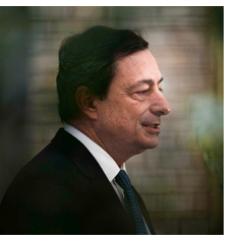The European Commission’s plans for a banking union are facing fierce headwinds. Without such a scheme it will be very tough to recapitalize struggling banks, stabilize financial markets and resolve the euro zone crisis. There’s consensus that the project is necessary and will happen — and European Union political leaders did agree to it in June. But resistance from the wealthiest northern European countries, with German savings and co-operative banks leading the charge, will likely lead to both delay and compromise, notwithstanding the European Commission’s decision earlier this month to move forward.
In September the Brussels-based commission outlined three core elements of the union for the EU’s 6,000 banks. The first step, approved by European leaders on December 13, is the single supervisory mechanism (SSM), a unified banking regulator under the European Central Bank. Supervision is scheduled to cover all relevant banks by January 2014. In a December 3 statement the commission said internal market commissioner Michel Barnier was “maintaining the momentum” for this timetable. Eventually, it also wants to introduce a joint deposit guarantee scheme and a joint resolution fund to help wind down failed banks. But for now the commission seems to have discarded the deposit guarantee, and German opponents are sniping at both other proposals.

German regulators have been quieter, but Hofmann and his colleagues appear to have won the debate for the time being. “Financial union does not have to imply the pooling of deposit guarantee schemes,” ECB president Mario Draghi told the BVR during a November speech in Frankfurt. Georg Fahrenschon, head of the German Savings Banks Association (DSGV), thinks any such plan is dead. “A joint European deposit insurance scheme is a no-go for us,” he says. Fahrenschon, whose Berlin-based group has more than 400 members, also opposes the joint resolution fund.
For enthusiastic supporters of banking union, though, Europe-wide deposit and resolution schemes are crucial. That’s because the original intention behind the unification plan, as European Commission president José Manuel Barroso said in September, was “to break the vicious link between sovereigns and their banks.” Daniel Gros, director of the Centre for European Policy Studies in Brussels and a proponent of banking union, says there’s no escaping an eventual compromise; he proposes a “deposit reinsurance scheme” that backs up existing national ones.
A more immediate worry is that the legal basis for a single European banking supervisor could be challenged. The commission cites Article 127 of the Maastricht Treaty of 1992 and its successor, 2009’s Lisbon Treaty, the agreements that govern the EU, as proof that the ECB has the authority to act as supervisor. But Article 127 only authorizes the ECB to help shape supervisory policies carried out by national regulators, argues David Green, former head of international policy at the U.K.’s Financial Services Authority. The commission and the ECB seem in no mood to amend the treaty, which could delay banking union for several years, Green says. In a recent statement the central bank said that “Article 127(6) of the treaty constitutes the legal basis for rapidly and effectively conferring supervisory tasks upon the ECB.”
Either way, the German co-operative and savings banks don’t want any interference from the ECB because they believe BaFin, Germany’s domestic regulator, works well. “We need separate structures to supervise the large international banks on the one hand and the more local banks on the other,” Fahrenschon contends. Gros thinks the commission could be pushed to accept that the SSM should supervise only the biggest banks. This is the kind of concession demanded by German Finance Minister Wolfgang Schäuble. “Nobody believes that any European institution would be capable of supervising 6,000 banks in Europe,” he publicly told his fellow EU finance ministers in Brussels in December. Larger institutions, notably Deutsche Bank, have made it clear that they support banking union.
The commission and the central bank point out that national regulators will remain important. “We’re not about to expand massively — 90 to 95 percent of the work will be in the hands of national supervisors, and the ECB will be a central decision-making authority,” an ECB source explains. But if banking union is inescapable, expect more concessions.






